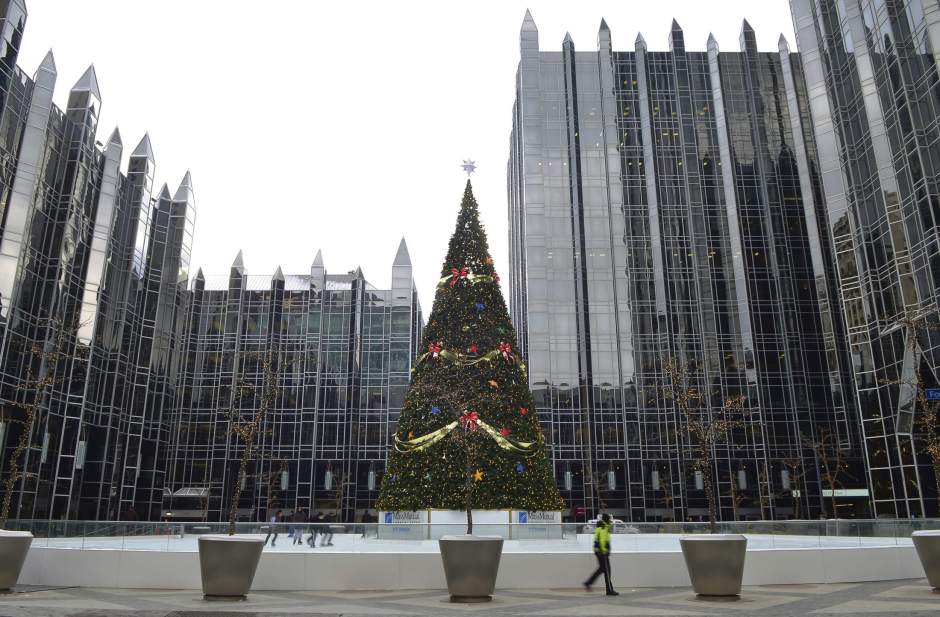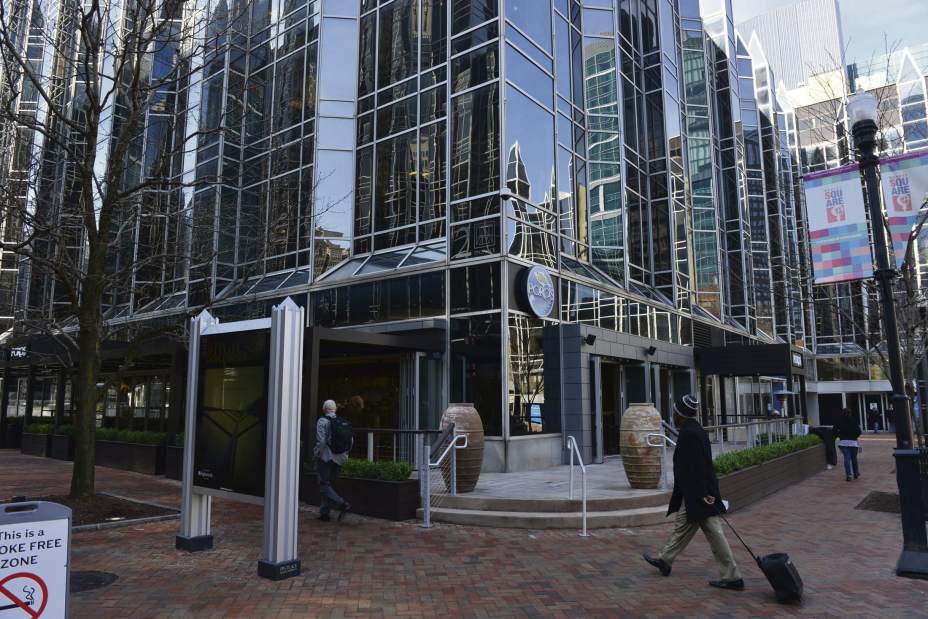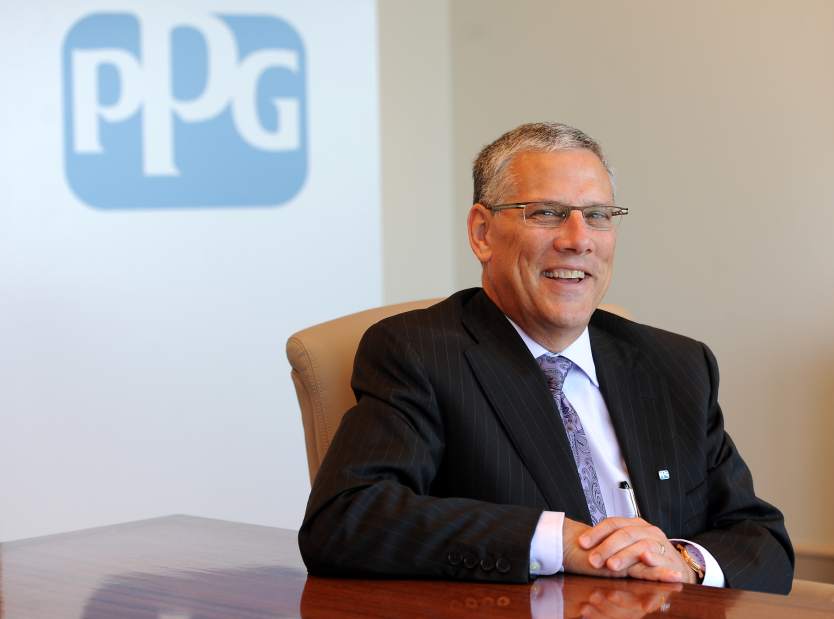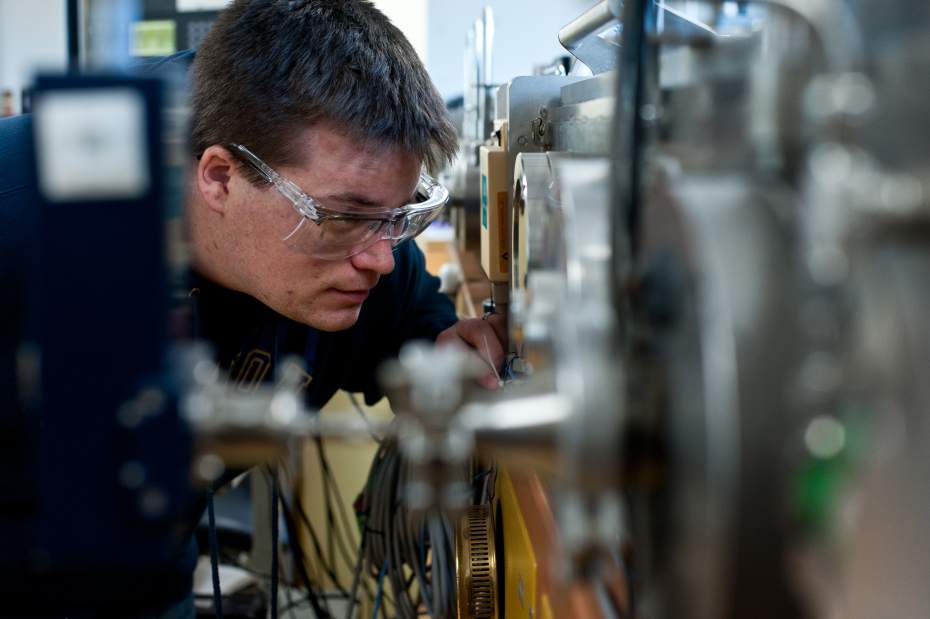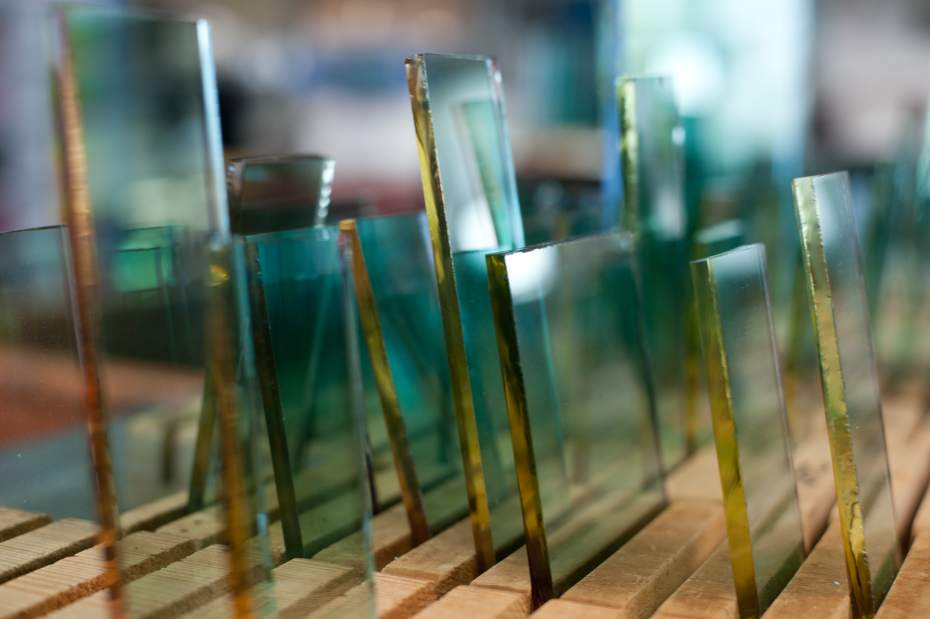PPG sells flat glass division, ending 'historic' era in Pittsburgh
PPG Industries Inc. ended a more than 130-year run as a flat glass manufacturer Thursday as it agreed to sell that part of its operation to a Mexican company for $750 million.
PPG, which was founded in 1883 as Pittsburgh Plate Glass, called the divestiture “the end of an historic era” as it focuses on producing paint and coatings.
The company continues to make fiberglass in the United States, but once the deal with Vitro SAB de CV closes this year, 98 percent of PPG's more than $15 billion in annual sales will be generated from paint and coatings that are applied to airplanes, ships, buildings, cars and a variety of other products.
“It is another major step in our portfolio transformation to focus on paints, coatings and specialty materials,” CEO Michael McGarry wrote in a statement.
PPG marked another change Thursday when former CEO Charles Bunch, who was instrumental in the company's more than decade-long transition to a paint company, announced he will step down as executive chairman Sept. 1.
Bunch, 66, who has worked at PPG for 37 years, was CEO for 10 years before McGarry was named to the top job last year. McGarry will add the role of chairman to his responsibilities when Bunch leaves.
“Chuck's leadership has strengthened PPG's position and set the company on a solid path for future growth and success,” Hugh Grant, PPG's independent lead director, wrote in a statement.
Before Bunch took the helm at PPG, the company produced a range of paints, chemicals, glass and optical lenses. In 2002, the company generated 27 percent of its sales from glass and 55 percent from paint.
During the past 14 years, PPG has sold its chemicals and Transitions optical lens businesses, and chipped away at its glass divisions. It embarked on an acquisitions spree in the paint industry, buying 65 companies, including the $1 billion purchase of AkzoNobel's North American paint business and the $2.3 billion buyout of Mexican paint company Comex.
By the end of last year, 7 percent of the company's sales were from glass and the remainder were from paint and coatings.
The shedding of glass assets continued this year. In February, the company sold its 40 percent stake in Pittsburgh Glass Works, a company that produced windshields and other glass products for the automotive industry. Last month, the company sold its European fiberglass business.
On a call Thursday to discuss the company's second-quarter financial results, McGarry told analysts that PPG is open to selling its U.S. fiberglass business, but “we're not in any active engagement right now.”
The sale of the flat glass unit to Vitro includes plants in California, Oregon, Texas and Carlisle, Cumberland County, a research and development center in Harmar and 1,200 employees.
The Harmar facility employs about 270 people, including 150 workers who perform research for flat glass products. The other 120 workers, who do research on fiberglass and paint,will remain employed by PPG, spokesman Mark Silvey said.
Vitro plans to keep the research center open, spokesman David Lopez wrote in an email.
“It is a very important part of the business and will complement our existing operations,” he said.
Officials were not available to comment on what the deal would mean for flat glass unit workers in Harmar.
Christopher Muir, an S&P Capital IQ analyst in New York, said the decision to sell the flat glass unit wasn't surprising because “it was totally separate from their other businesses.”
With fewer interests in glass production, PPG can more easily “define their vision and their future” in the paint industry, Muir said.
PPG needs to focus on the paint industry, as sales have been sluggish because of weak economic growth in parts of the world.
In the second quarter, for example, PPG's paint sales to European automotive customers and Latin American packaging companies were strong, but the company's performance was weak in North American architectural coatings and among shipbuilders in the Asia-Pacific region.
“They have a fairly cyclical exposure to the market,” Muir said. “There are going to be ebbs and flows that go on with all these industries.”
Despite facing challenging markets, PPG said its profit in the second quarter rose 10 percent as a cost-cutting initiative started last year helped the company lower expenses to compensate for flat sales.
The company reported income of $370 million, or $1.37 a share, in the April-June quarter, compared with $337 million, or $1.23 a share, in the same quarter last year. Sales were $4.1 billion, unchanged from a year ago.
The company's stock price fell $1.44 Thursday, or 1 percent, to close at $108.59.
Alex Nixon is a Tribune-Review staff writer.


